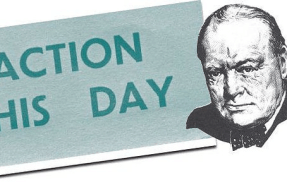“School Display”: Churchill’s First PublishedWork

Young Winston Churchill had just turned seventeen when his first published work was printed in December 1891 in the pages of the Harrow School’s weekly newspaper The Harrovian under the pseudonym Junius Junior.
Churchill’s first published work raises a number of curious questions. Why did he write the letter? What did the letter express? Was there a reason he used the pseudonym Junius Junior, and was there a response by schoolmates, or the school administration?
Letters to the Editor
Winston Churchill entered Harrow, an independent boarding school for boys in Middlesex, on 17 April 1888. While there, he took up fencing and spent a good deal of time in the gymnasium. Churchill eventually became fencing champion of the school in December 1892.
On 8 October 1891, Churchill had his first letter published in The Harrovian. It was a two-sentence appeal for more convenient opening hours for the school library. In writing the paper, Churchill would have been cognizant of The Harrovian’s policy, which appeared regularly in its pages, and read:
CORRESPONDENCE: The Editors will be glad to receive any correspondence from Harrovians, past and present; but in all cases the writer must send his name and address—not necessarily for publication, but
You’re reading a preview, subscribe to read more.
Start your free 30 days

